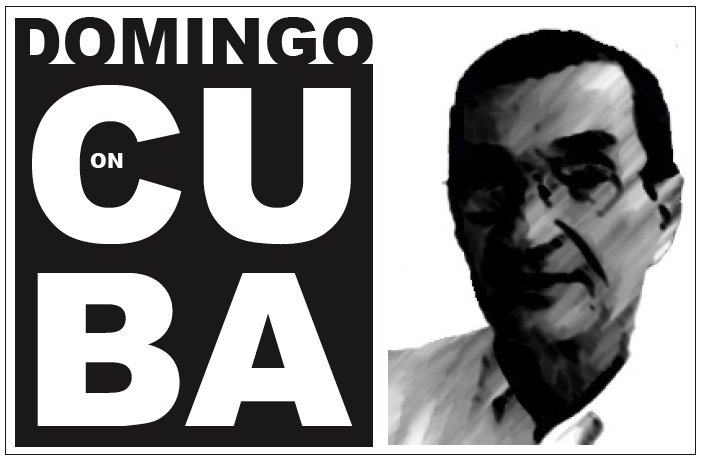The long-standing conflict with the United States is possibly beginning to head towards a direction more favorable for Cuba. Current trends in the United States and Venezuela point in that direction.
In its intensified economic warfare and other hostile actions, one of the Trump administration’s most-used arguments is Cuba’s relation with the government of Nicolás Maduro. The argument is delivered with an abundance of conspiracy theories — all of them unfounded — describing the Cuban-Venezuelan relationship as one of total subordination by Caracas to Cuban dictates, which are supposedly backed up by the presence of nothing less than 25,000 Cuban soldiers. What kind of credibility does the Trump administration enjoy in the international arena with such theories? Very little, and practically none in a hemisphere where a majority has validated Cuba’s role and significant contributions to peace processes in Central America and Colombia since the 1980s.
During the two years of failed efforts by the Trump administration to oust Maduro and replace him with a supposedly “interim” President Juan Guaidó, a simultaneous objective has always been to cut the economic and cooperation links between Venezuela and Cuba, in order to strangle the Cuban economy.
But Maduro has survived an onslaught of economic and political aggression, including repeated calls by top Trump administration officials — Trump, Pompeo, Bolton, Abrams, Rubio, Claver-Carone, among others — for a military uprising. This failure, considering the overwhelming power — short of direct military invasion — displayed by the United States and its allies, defies simple responses. No matter why, on several occasions, Washington has already sent signals it is reconsidering how to deal with Venezuela and the alternative Guaidó. And in the case of Cuba, with no less aggression and pressure, Trump’s failing attempt is equally in trouble.
Two trends make the position of the United States and its allies increasingly untenable, clearly pointing towards a more constructive approach to Venezuela. The first trend is tied to the U.S. elections on Nov. 3 and a probable victory of Joe Biden and the Democratic Party, which — if Biden follows his words with action — would mean a return to the Obama administration’s normalization policies towards Cuba. That said, in the candidate’s most recent comments regarding Cuba and Venezuela, he seems to be dragging along an inherited notion of Cuba —together with China and Russia — being guilty of everything that happens in Venezuela. This seems to suggest that Biden will condition any improvement of relations on Cuba cutting its close ties with Venezuela. It would be sad if the Biden team were to promote such a link, forgetting the glorious failure of a similar approach in the chapter of U.S.-Cuba negotiations over Cuba’s military intervention in Angola in the 1980s.
The second trend is the increasing likelihood of a negotiated solution, as the Dec. 6 elections for parliament are approaching. Fortunately, this could help render any conditioning obsolete, prompting a Biden administration to rethink its approach to the Venezuelan crisis altogether.
Guaidó, his followers, and the United States and its allies, have rejected participation in elections for months, insisting on their overthrow plans, although there have been more conciliatory tones from Brussels lately. The European Union’s softening did not come casually, but rather in response to important changes in the Venezuelan panorama. Maduro’s proposal of legislative elections in December has gained tracking by adding new and major backers, while the coalition headed by Guaidó has begun to crumble, as its — quite worn out — figurehead has been losing relevance and terrain. Most of all, there is a re-emergence of two-time recent presidential candidate Henrique Capriles and his Primero Justicia party, whose questioning of Guaidó’s abstentionist approach and calling for active participation in the electoral process have gained considerable support.
Capriles’ public positioning regarding the elections came shortly after the Catholic hierarchy in Venezuela — which has been vehemently opposed to Maduro —made a call to all parties to participate in the elections, to everyone’s surprise. This kind of positioning was unlikely without the involvement of the Vatican and some type of consulting with Washington. On the other side of this new scenario, the Maduro government freed 110 political prisoners and offered to allow the United Nations and European Union supervise the electoral process. The EU participation is still conditioned on Maduro making some concessions for more transparency, but High Commissioner Josep Borrell is showing more disposition to participate than anytime before.
If the elections happen with these new elements of validation and legitimacy, plus some that may be added in coming weeks, it would be much easier for a Biden administration to shift towards a more conciliatory position, together with its allies — both in its relations with the Maduro government as well as in regards to possibly dropping its conditionality to normalizing relations with Cuba.
As to the outcome of the December elections in Venezuela, if the opposition coalition Capriles can put together wins a simple or two-thirds majority, it could lead to French-style cohabitation for a limited period — something Guaidó always rejected — where Capriles will surely emerge as the most likely presidential candidate, which in turn would marginalize Guaidó. As a headline in a European newspaper put it: “Guaidó’s decline speeds up”.
Such a turn of events would leave Guaidó’s bloc in irreversible political bankruptcy. As to the Trump policies, the implications for Cuba would be extremely favorable; an end to the Venezuela conditionality for Cuba would make improved economic relations with both the United States and Venezuela possible. In other words, the outcomes of the elections in the United States and Venezuela should smooth the path towards a return to U.S.-Cuba normalization.
Former Cuban intelligence officer Domingo Amuchastegui has lived in Miami since 1994. He writes regularly on Cuba’s internal politics, economic reform, and South Florida’s Cuban community


